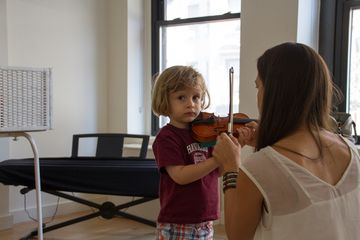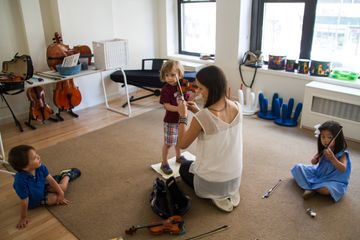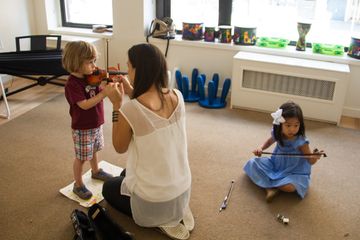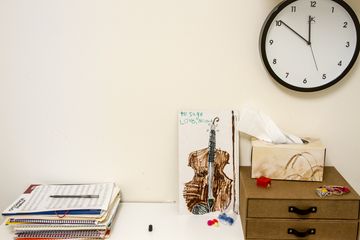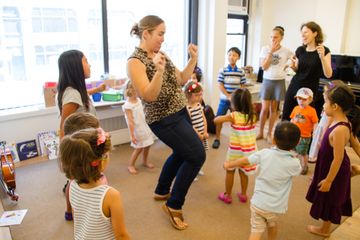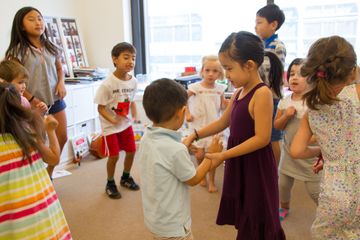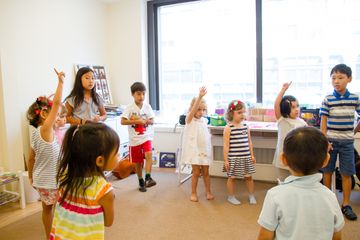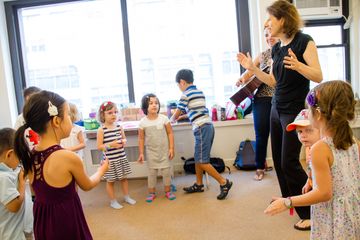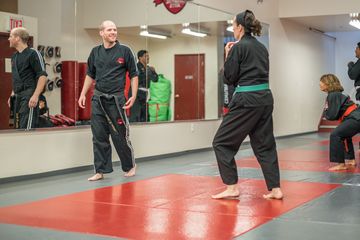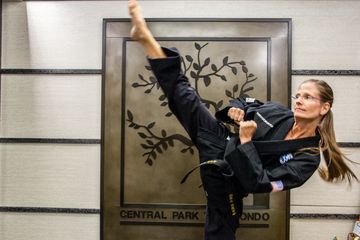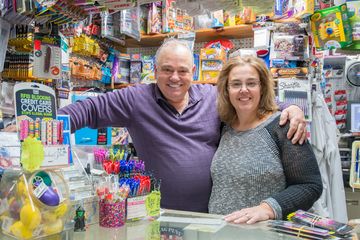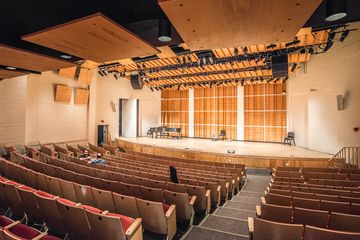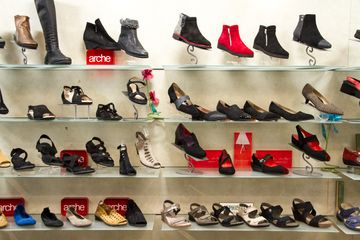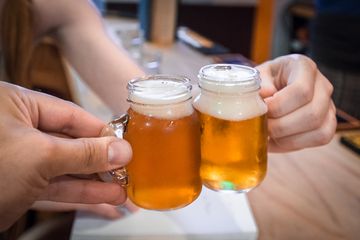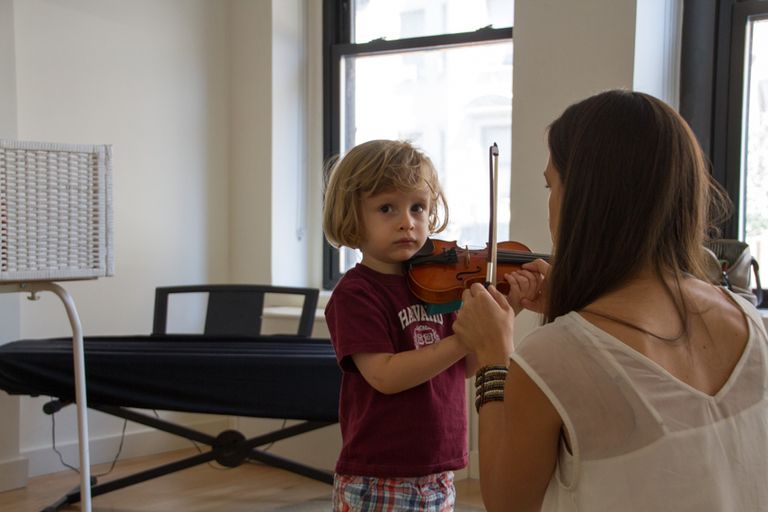
One of the first things children are taught to say at Silver Music is "I like chocolate ice cream." While this may seem like a way to enhance a kid's sweet tooth, it is actually a clever method of teaching one of the primary rhythms of the Suzuki method. "We used to have ice cream parties at the end of the year," the founder, Ellen Silver, told me. "We didn't want to torture the children by just talking about ice cream all year – but now there are just too many students."
Ellen, a cellist who has worked as a teacher with the internationally recognized "Music Together" program, has always been fascinated by the way very young children approach instruments. Every child is different, but she noticed patterns of learning that she believed would help her better prepare toddlers for music lessons. She started out in 2005 with a class of five students in her Upper West Side apartment and began teaching them the beginning stages of piano, cello and violin. This involved singing, holding a bow, improvisation exercises, and learning how to take directions. "Those children are now fourteen or fifteen, and they still come to Silver Music!" Ellen said proudly.
Though Silver Music has since expanded by offering programs for all ages, that beginner's class, called "Ready, Set, Play," is still a major component of the school. There are at most four kids in the class, generally from two to four years old. "Over time they want to learn how to play an instrument the right way," Ellen explained to me. "And that means they are ready for lessons." Though the classes still focus on violin, cello, and piano, she is thinking of possibly adding guitar into the mix. With a strong core of instructors, Silver Music is able to offer lessons to well over one hundred students, as well as another seventy who come specifically for "Ready, Set, Play."
"All of our teachers are amazing performers, but they are passionate about teaching," Ellen shared. She then went on to tell me that she moved the school to 72nd street in 2014 with the help of her husband, who is an architect. Because of what we do at Manhattan Sideways, it was interesting to hear that the two of them walked the side streets in this neighborhood in order to find the perfect location. When they found their home on 72nd street, they redesigned the space and sound-proofed it. Ellen assured me that the residents of the building love them, especially since many of them are musicians, themselves. In addition to the main center, Silver Music has a one-room location on Tiemann Place in Harlem and does outreach programs at two different preschools.
I looked in through the window, grinning from ear to ear, at the young children holding their tiny instruments. Ellen told me that kids can be taught to hold a bow at the age of two. "It's just so amazing to see them develop these skills that you may not have known they could have," she said, and showed me a video of one of her youngest students sliding a small bow along the strings of a Lilliputian violin. I was pleased to discover that many of their small instruments come from David Segal, whom I had met a few weeks prior.
Ellen uses a variety of methods to teach the children. She encourages them to love and respect their instruments (often through song – she sang a snippet of the "I love my cello" song for me), but she also inspires them to explore. She lets them see what new sounds they can make, asking them fun questions like, "How do you make a slippery slide on the cello?" She urges them to discover their own way of playing, and then gently introduces a new way.
Ellen also uses elements of the Dalcroze method, an approach to music that incorporates movement. It was fascinating to learn that by showing them to how to explore music with their bodies, Ellen can better teach small children how to read and write music. Using strokes for long beats and connected strokes for short beats, she creates a physical and literary code that children can understand. Each long beat is a stomp, whereas the quick beats are running in place. Children often learn to write this beat notation by the age of four, and some even learn it before they know how to write letters. There is no doubt in my mind that Ellen and her team are having a remarkable impact on many little ones who will inevitably grow up with a deep appreciation for music.
Silver Music has taken into consideration every aspect of reaching people through music. Their classes continue through the summer, when each week ends in a small concert with the campers. They present concerts throughout the year, either held in a family's home or at the American Academy of Arts and Letters on West 155th Street - a place that Ellen describes as a "hidden Carnegie Hall." Ellen also offers classes to families who want to learn to play an instrument together, and Chamber Music sessions for adults who are eager to be a part of an ensemble. Although, initially, Silver Music's adult clients were the parents of the children, today Ellen is pleased that her grown-up students are coming from various parts of the city - and some young students come to camp from as far away as Massachusetts and Vermont.
Ellen's true devotion will always be with respect to her youngest pupils. "Every kid can benefit from our classes....and we nurture each little avenue." Students learn to follow directions, concentrate, and develop language skills. She finds great joy in the children who sing and dance almost before they can walk and talk. Her tireless goal is to foster an environment where these children can continue to receive personal attention to allow their particular skill set to grow.
